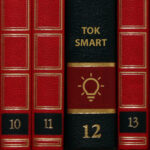
/
RSS Feed
Before Enlightenment:
- Rulers claimed power because of a “divine right”. Power came from God.
- Enlightenment: Social Contract Philosophy
- The question: If people are born free and with certain rights, why does the government then have authority, for example to exercise violence (police), take my property (tax), freedom (prison)?
- The answer: The right to rule comes from the people (not from God). We have agreed either explicitly or tacitly, to give up some of these freedoms in return for protection by the government. Idea: rational individuals would voluntarily agree to give up some of their natural freedom.
- This agreement is called the “social contract”. It is an agreement between the people being governed and the government. According to social contract theory, laws and political order are not natural, but rather created by humans.
- Social contract theory has been extensively studied and there are different views, approaches to this topic.
Thomas Hobbes (1651):
- Human nature is destructive. “In such condition, there is no place for Industry; because the fruit thereof is uncertain; and consequently no Culture of the Earth; no Navigation, nor use of the commodities that may be imported by Sea; [..]; no Knowledge of the face of the Earth; no account of Time; no Arts; no Letters; no Society; and which is worst of all, continual fear, and danger of violent death; And the life of man, solitary, poor, nasty, brutish, and short.”
- In the absence of political order and law: everyone would have unlimited natural freedoms. There would be a “right to all things” and a “war of all against all”
- To avoid this: Strong powerful leader. The government’s laws may be arbitrary and tyrannical, but in his view an absolute government as the only solution to prevent the terrifying anarchy of a state of nature. He advocated “terrour of some Power” otherwise humans will not follow the laws
- The power of this leader does not come from God, but from the people. The people would voluntarily give up their freedoms.
John Locke (1689):
- People are born neither good not bad. Born as a “Tabula Rasa”, a blank slate.
- People are going to try to better themselves and society
- He promoted a limited government to protect people’s lives, freedoms and property
- Men all being naturally free, equal, and independent, no-one can be deprived of this freedom etc. and subjected to the political power of someone else, without his own consent.
The only way anyone can strip off his natural liberty and clothe himself in the bonds of civil society is for him to agree with other men to unite into a community, so as to live together comfortably, safely, and peaceably, in a secure enjoyment of their properties and a greater security against outsiders. - Believed in a representative Democracy: we elect leaders that make laws on our behalf.
Jean-Jacques Rousseau (1762):
- Man is born free, but everywhere in chains
- People are good but Society corrupts
- Laws are made directly by the people ‘general will’: all the citizens’ collective interest – not to be confused with their individual interests. Some social contract theorists say that if the government fails to secure their natural rights (Locke) or the best interests of society (Rousseau), then citizens can change the leadership by election or revolution
Criticisms:
- Government claims too much power under the guise of protecting the public.
- Government might create fear in the public to justify wide-reaching laws.